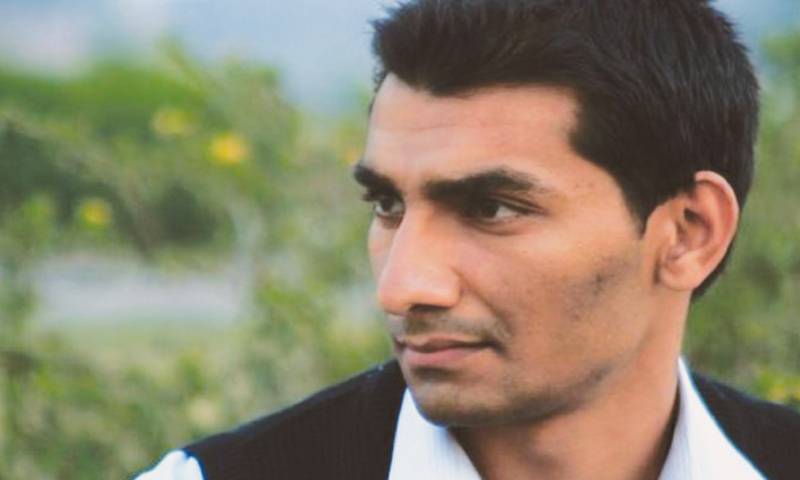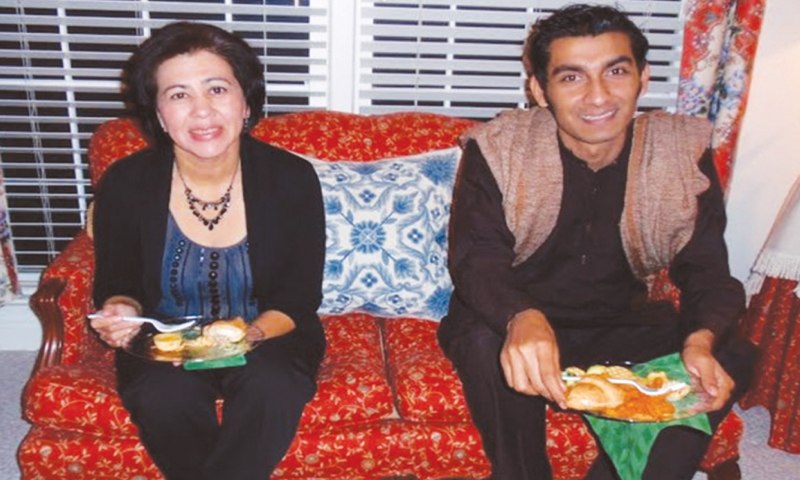
It has been over 5 years since the arrest of Junaid Hafeez over blasphemy allegations on March 13, 2013. During these years, the young professor of Bahauddin Zakaria University has been living alone in a dark cell of the New Central Jail, Multan. Only time can tell what awaits for him, but in reality, it makes no difference whether he would be acquitted or convicted. In Pakistan, mere accusation of blasphemy amounts to a death warrant for the accused.
Born in the district of Rajanpur, Junaid was considered a genius from the very start. His intellectual prowess was attested by his performance at the secondary school and college levels, which he passed with the best scores possible. It was in 2009, during his stay in Bahauddin Zakariya University, Multan, when Junaid was selected for a Fulbright Scholarship to study at the prestigious Jackson State University. Along with excelling in his formal education of Photography, Theatre, and English Literature at Jackson State, he also directed and acted in several plays.

In 2011, after completing his one-year education at Jackson State, Junaid returned to Bahauddin Zakariya University, Multan to complete his undergraduate degree. Shortly after completing his degree, he secured a teaching position at his alma mater. His teaching career came to an end on 13th March 2013, when he was accused and later arrested on the charges of blaspheming against the holy scriptures and sacred personalities of Islam, which is a crime under the section 295-c of Pakistan Penal Code. The most tragic part of the story was the fact that the accusation was made by some of his own students, who were members of Islami Jamiat-e-Talaba, the student wing of Pakistan’s right-wing political party Jamaat-e-Islami. The arrest was followed on the onset of on-campus protest by some students, belonging to the same organization, demanding Hafeez’s head. Instead of defending a member of their faculty, and waiting for the due legal process to take place, the university administration fearfully succumbed to the threat of violence and immediately canceled Junaid’s teaching contract.
Defending or siding with a person accused of blasphemy can prove to be fatal in Pakistan. In 2011, just a couple years before Junaid’s arrest, Salmaan Taseer, the governor of Pakistan’s most powerful and populous province of Punjab, was shot dead by his own bodyguard Mumtaz Qadri for siding with Asia Bibi, a poor Christian lady accused, and recently acquitted, of committing blasphemy. In Junaid’s case, when most lawyers rebuffed the appeals of Mr Hafeez to represent his son in the court of law, Advocate Rashid Rahman agreed to represent Junaid.
Advocate Rahman had 20 years of experience in the legal field. Moreover, he also worked as a special coordinator for the Human Rights Commission of Pakistan in Multan. While discussing the case, Advocate Rahman told a reporter that “Defending a man accused of blasphemy was like walking into the jaws of death”. On 8 May 2014, few months after this interview, advocate Rehman was shot dead in his office by an unidentified gunman. The day following his murder, a pamphlet, justifying the death of Rashid Rehman, was scattered around lawyers’ chambers in Multan.
According to Amnesty International, “the blasphemy law of Pakistan is widely misused by people to settle personal vendettas.” Hindus, Christians, Freethinkers, and other minority groups often come under attack from extremist right-wing, over mere allegations of blasphemy, most of which are often politically motivated. While commenting about blasphemy laws in Pakistan, Audrey Gaughran, the Director of Global Affairs said, “Once a person is accused, they become ensnared in a system that offers them few protections, presumes them guilty, and fails to safeguard them against people willing to use violence.”
Despite all the hardships faced by Junaid inside his solitary cell, he hasn’t given up on himself yet. He spends most of his time reading books. In a way, the books help Junaid stay sane in this world full of insanity.
Also read: Junaid Hafeez: artist, teacher, poet, and son – incarcerated
Born in the district of Rajanpur, Junaid was considered a genius from the very start. His intellectual prowess was attested by his performance at the secondary school and college levels, which he passed with the best scores possible. It was in 2009, during his stay in Bahauddin Zakariya University, Multan, when Junaid was selected for a Fulbright Scholarship to study at the prestigious Jackson State University. Along with excelling in his formal education of Photography, Theatre, and English Literature at Jackson State, he also directed and acted in several plays.

In 2011, after completing his one-year education at Jackson State, Junaid returned to Bahauddin Zakariya University, Multan to complete his undergraduate degree. Shortly after completing his degree, he secured a teaching position at his alma mater. His teaching career came to an end on 13th March 2013, when he was accused and later arrested on the charges of blaspheming against the holy scriptures and sacred personalities of Islam, which is a crime under the section 295-c of Pakistan Penal Code. The most tragic part of the story was the fact that the accusation was made by some of his own students, who were members of Islami Jamiat-e-Talaba, the student wing of Pakistan’s right-wing political party Jamaat-e-Islami. The arrest was followed on the onset of on-campus protest by some students, belonging to the same organization, demanding Hafeez’s head. Instead of defending a member of their faculty, and waiting for the due legal process to take place, the university administration fearfully succumbed to the threat of violence and immediately canceled Junaid’s teaching contract.
In 2011, just a couple years before Junaid’s arrest, Salmaan Taseer, the governor of Pakistan’s most powerful and populous province of Punjab, was shot dead by his own bodyguard Mumtaz Qadri for siding with Asia Bibi, a poor Christian lady accused, and recently acquitted, of committing blasphemy.
Defending or siding with a person accused of blasphemy can prove to be fatal in Pakistan. In 2011, just a couple years before Junaid’s arrest, Salmaan Taseer, the governor of Pakistan’s most powerful and populous province of Punjab, was shot dead by his own bodyguard Mumtaz Qadri for siding with Asia Bibi, a poor Christian lady accused, and recently acquitted, of committing blasphemy. In Junaid’s case, when most lawyers rebuffed the appeals of Mr Hafeez to represent his son in the court of law, Advocate Rashid Rahman agreed to represent Junaid.
Advocate Rahman had 20 years of experience in the legal field. Moreover, he also worked as a special coordinator for the Human Rights Commission of Pakistan in Multan. While discussing the case, Advocate Rahman told a reporter that “Defending a man accused of blasphemy was like walking into the jaws of death”. On 8 May 2014, few months after this interview, advocate Rehman was shot dead in his office by an unidentified gunman. The day following his murder, a pamphlet, justifying the death of Rashid Rehman, was scattered around lawyers’ chambers in Multan.
“Once a person is accused, they become ensnared in a system that offers them few protections, presumes them guilty, and fails to safeguard them against people willing to use violence.”
According to Amnesty International, “the blasphemy law of Pakistan is widely misused by people to settle personal vendettas.” Hindus, Christians, Freethinkers, and other minority groups often come under attack from extremist right-wing, over mere allegations of blasphemy, most of which are often politically motivated. While commenting about blasphemy laws in Pakistan, Audrey Gaughran, the Director of Global Affairs said, “Once a person is accused, they become ensnared in a system that offers them few protections, presumes them guilty, and fails to safeguard them against people willing to use violence.”
Despite all the hardships faced by Junaid inside his solitary cell, he hasn’t given up on himself yet. He spends most of his time reading books. In a way, the books help Junaid stay sane in this world full of insanity.
